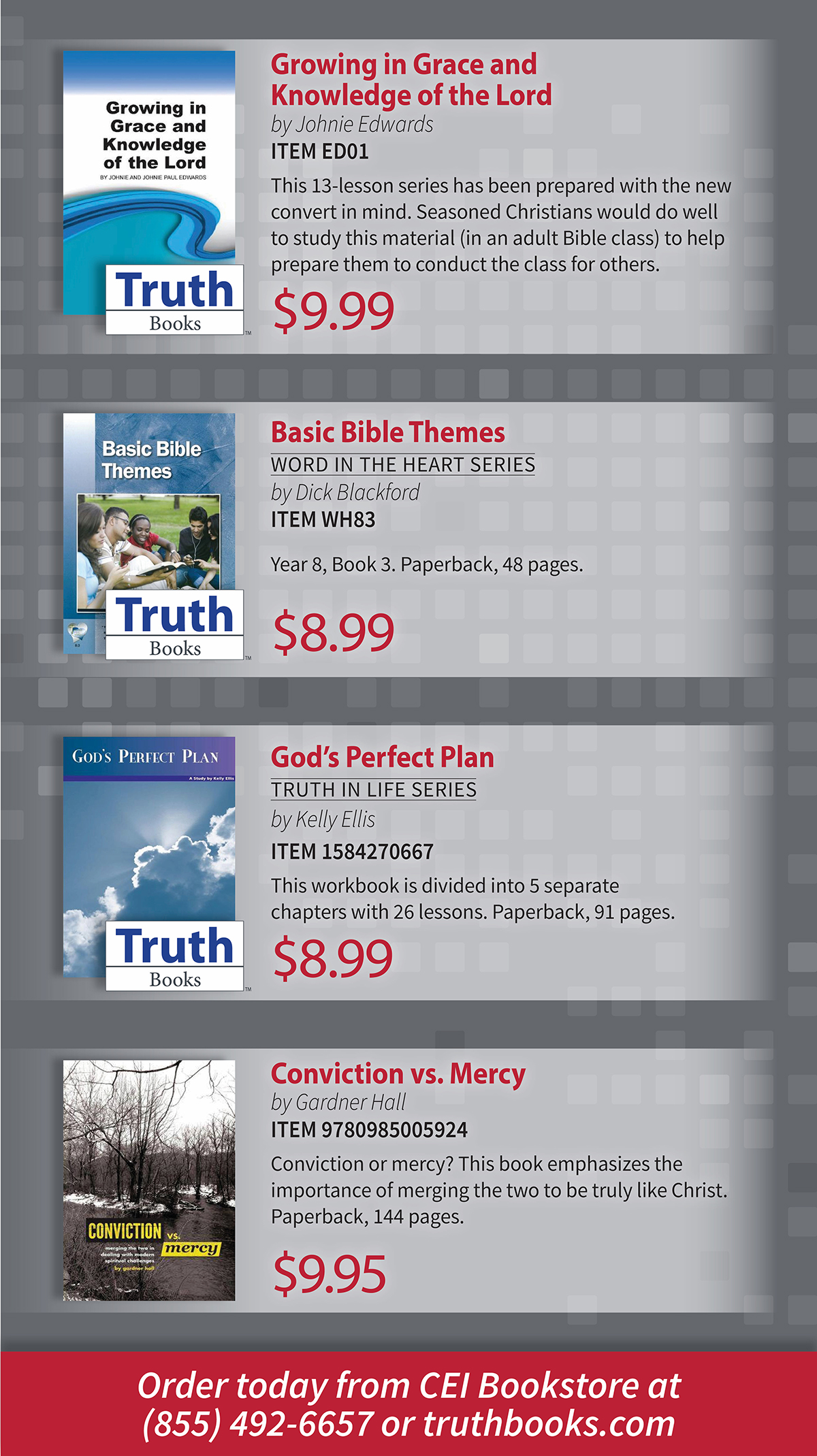

by David Flatt
Synopsis: Let us consider the effects of God’s grace, as expressed through Jesus, the Messiah. Divine grace and its consequences are superior to sin and its consequences.
To this point in our study of Romans, Paul has announced the good news of God. The fact that God raised Jesus from the dead through the Spirit means everyone can be saved—that is, everyone who believes this news. In the opening four chapters of this epistle, Paul explains how the gospel demonstrates God’s faithfulness to the covenant that He made with Abraham.
Understanding the past is essential. Proving God’s covenant faithfulness was critical to Paul’s argument. Yet, what does His covenant faithfulness mean to us? As this second section of the Roman letter commences, Paul explains the impact of God’s grace in our lives.
God’s covenant faithfulness means that we can share a loving relationship with Him. As Paul explores this concept, he states that the first result of being justified by faith is peace with God. Secondly, he affirms that we are given access to God’s grace and permitted to approach the presence of God. This language is suggestive of the close personal relationship that we can enjoy with God. It is reminiscent of the relationship that He shared with high priests of the Old Testament who faithfully served in the tabernacle/temple. Yet, Jesus’ death tore the veil of the holy of holies; therefore, we can all come into God’s presence. In chapter 3, Paul asserts that we receive grace and forgiveness at the new seat of mercy—no longer the lid of the Ark of the Covenant, but the cross of the Messiah (Rom. 3:25). Now, as a kingdom of royal priests, all those who are part of the covenant family of God are given this access (Heb. 4:16).
Additionally, living in God’s grace by faith leads to a joyous and hopeful life. This relationship brings stability to our ever-changing lives—providing a place of safety and protection. However, the dark powers of evil would challenge and corrupt this relationship. Paul begins to acknowledge the difficult realities of being part of God’s covenant family.
Being part of God’s family brings suffering. Although we experience tribulation and persecution, Paul describes the approach that we should follow. He does not say we celebrate our actual sufferings, but that we rejoice in our sufferings. The blessings of being part of God’s covenant family can be enjoyed even in the face of suffering. Distressing circumstances cannot remove us from God’s family.
Paul outlines a step-by-step approach by which Christians may face suffering. First, affliction, suffering, tribulation, and trouble create opportunities for us to grow. Second, endurance produces experience or character. The more experienced we become, the more wisdom we gain in how to endure suffering faithfully. Third, if we adhere to the process detailed, we will foster hope.
The world may consider us foolish, hoping for something we cannot see. Yet, there is no shame in hope. There is no shame if we suffer as Christians (1 Pet. 4:16). If we faithfully endure suffering, the hope that develops through this process will not disappoint. The process Paul is describing is how we live by faith (Rom. 1:17).
In this section, Paul explains how the blessings of hope described in Romans 5:1-5 are made possible by Jesus’ death. This is a compelling passage relating to the love of God. Divine love is revealed through Jesus’ life and death. Through His incarnation, i.e., the divine inhabiting flesh, Jesus lived as a man and gave His life for us. He is the embodiment of God’s love.
Those facing the prospect of death are often physically weak and without strength. Spiritually speaking, the human family is weak and without strength. This weakness results from the deterioration brought on by sin, a spiritual decay that ultimately culminates in death.
We are also described as being ungodly sinners and enemies of God. When we consider who we are (or who we are not), God’s love is even more astonishing. How could He love those who are weak, impulsive, and hostile towards Him? An outpouring of divine wrath would have been more understandable than the outpouring of grace. Instead of destroying us, God loved us and sent His Son to save us.
Paul introduces a new term in this section: reconciliation. By turning to idolatry, man created a state of hostility between himself and God. Instead of destroying mankind, God brokered peace between Himself and His creation through Jesus. Thus, Jesus accomplished reconciliation, bringing us back into a favorable, loving relationship with our Maker (2 Cor. 5:14-21; Col. 1:19-23). The result of peaceful reconciliation is a newly formed family of God, which will be more fully described in chapter 8.
Looking to the future, Paul reveals the end of those who believe in the gospel: he reassures believers of their salvation. Not only can we be brought into God’s covenant family, but having been justified by Jesus’ blood, we are also saved from wrath. Being at peace with God, we have joy in this life. We have hope. We enjoy atonement. Therefore, let us celebrate what God has done for us through Jesus.
In this densely-packed passage, Paul summarizes what God did for lost humanity by contrasting opposites: Adam and the Messiah. By one man, Adam, sin entered the world. As sin came into the world, it reigned, causing decay, and the corruption of the human family. This is exhibited in the moral and ethical failings of humanity. It is seen in greed and selfishness, and the break-down of families and societies. Nothing good came from sin—it only brings death.
Going back to the beginning, Paul shows that, long before the Law of Moses, sin was a problem needing a solution. The sins of Adam and Israel are well documented. God gave specific commands to Adam, and later, to Moses and Israel. Yet, Adam and Moses/Israel broke those commands.
Between Adam and Moses, humanity fell into transgression. Yet, during this period, there was no formal code of law to keep track of sin. What does this mean? Many sinned and died before the Mosaic law was established. Therefore, something needed to be done about sin long before the law was given at Mt. Sinai.
From man’s fall in the garden, God planned to deal with sin through the Messiah. In this summary, Jesus serves as a counterpoint to Adam. Just as sin entered the world by one man, grace came by one man: Jesus Christ. Yet, it is critically important to note what Paul is not saying about the Messiah. God’s free gift, grace, is not like the trespass (Rom. 5:15). Jesus is not merely an equivalent response to Adam. Jesus is greater than Adam, and grace is superior to sin.
By reconciling humanity through faith in Jesus Christ, God is not just trying to get us back to the condition of Adam before sin. God’s plan is not merely to remake us into what we once were; instead, He produces something far better. Magnificent blessings are ours to experience, now and in the future, by faith in the Messiah.
As an illustration, consider how a structure is rebuilt after being damaged or destroyed by a hurricane. In coastal regions subjected to tropical storms, builders do not merely duplicate the structure which previously existed. If they did, the next significant storm might result in additional damage. Builders redesign, reengineer, and reinforce the structures they rebuild, making the new structure better able to withstand future storms. God’s grace similarly empowers us to overcome sin.
The grace given to man is greater than sin, decay, and death. The new creation enabled by the Messiah is better than the original creation. Grace is more than just a reversal of sin and death. Paul wants his readers to appreciate the generosity outpoured on humanity by God’s love in the form of the Messiah.
Lastly, Paul returns to his line of reasoning established in verse twelve: as through one man, so through one man (Rom. 5:18-21). Paul reminds us of the sorry state of humanity, which reflects the image of Adam—a sinner. We must understand and accept who we are when we live in sin. When we choose a life of sin, we are not good-hearted people who occasionally do bad things; instead, we are bad people whose inner corruption is revealed through specific sinful acts. Those who live in sin are under condemnation. By contrast, a different kind of man is created through faith in the Messiah.
In this passage, Paul emphasizes the faithfulness of Jesus. Being righteous and morally upright, Jesus was ideally (and exclusively) suited to fulfill God’s covenant and bring grace to humanity.
Here Paul interjects something about the law entering that sin/the offense might abound (Rom. 5:20). What does this mean? While Paul will explain this in more detail in chapter 7, the point is this: the law only highlighted the problem of humanity. The law magnified the fact that mankind, specifically Israel, was in sin. The Mosaic code focused intense attention on sin, tabulating sin, revealing the magnitude of the problem.
The law could do nothing to solve the problem of sin, but grace could. The law magnified sin, but the grace of God super-abounded through the Messiah. This unusual expression emphasizes the magnitude of divine mercy. God’s grace, as manifest through the Messiah, is more significant than the totality of sin tabulated by the law.
Finally, Paul affirms that the reign of sin ends in death; whereas, the reign of grace has no end, but expands to eternal life. Thus, grace is not merely an equivalent response to sin. While this will be more fully discussed in chapter 6, sin is personified as a brutal, tyrannical oppressor—ruling through violence and death. Yet, the reign of grace contrasts with the reign of death. Grace powerfully triumphs over death, providing believers with the prospect of an energetic, hopeful life.
Some disciples doubt their salvation. Others conceive of salvation as a matter of chance, a coin toss. Many fear they will just never be good enough to be saved. Some go to the opposite extreme, hoping their good works will outweigh our wicked deeds. Yet, sinful man can never balance the scales or tilt it in his favor. Romans chapters 5-8 should settle such doubts and dispel the false notion of salvation by works.
God and man have roles in human salvation. Chapter six will explain our responsibilities towards God’s grace; however, we are not equal partners with God. He is good and able; we are weak and sinful. Our faith and hope rest in God’s grace.
God sent His Son to suffer and die for His enemies. God conquered death by raising His Son by the Spirit. The hard part of God’s work has been finished. All of that is in the past. If we believe in what God did for us through His Son, we have no reason to think He will not save us. Saving us on the “other side of the cross” is the natural part for God. Why would He turn back on us now after having done the hard part?
The hope that Paul here discusses is not wishful thinking. Hope is realized through faith in God’s grace, which has the power to transform us, bring us into His family, and give us eternal life. Will we believe it? Will we obey it?
Author Bio: David and his family began laboring with the Fry Road church of Christ in Houston, TX in 2019. The church website is fryroad.org. He can be reached at dflatt85@yahoo.com.

